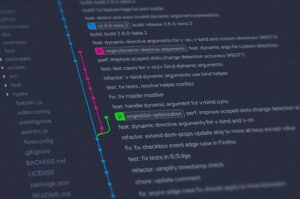Data scientists are analytical experts who use their skills in mathematics, statistics, and programming to interpret complex data sets. They extract meaningful insights and patterns from large volumes of data, helping organisations make informed decisions. Data scientists employ various techniques, such as machine learning and data mining, to uncover valuable information, contributing significantly to innovation and problem-solving in diverse industries.
Data scientists are facing a robust and rapidly evolving future. With the exponential growth of data in various sectors, including ‘Business and Industry,’ Finance, Telecommunications, Technology and E-commerce, Healthcare, and much more, the demand for skilled data scientists will continue to rise. Increasing the role of data scientists will include machine learning, AI model development, and deep data-driven insights beyond traditional analytics. Data scientists will play a crucial role in driving innovation, optimising business processes, and enhancing decision-making through data-driven strategies. Additionally, ethical considerations around data usage and privacy will become increasingly important, shaping the responsibilities and impact of data scientists in the evolving technological landscape.
demand for skilled data scientists will continue to rise. Increasing the role of data scientists will include machine learning, AI model development, and deep data-driven insights beyond traditional analytics. Data scientists will play a crucial role in driving innovation, optimising business processes, and enhancing decision-making through data-driven strategies. Additionally, ethical considerations around data usage and privacy will become increasingly important, shaping the responsibilities and impact of data scientists in the evolving technological landscape.
What are the prerequisites for becoming a data scientist:
Mainly, mathematics and statistics are very much required to be a data scientist, including knowledge of probability, linear algebra, and calculus. Proficiency in programming languages like Python or R is essential for data manipulation and analysis. Understanding databases and data querying languages (SQL) is crucial for data scientists. Familiarity with machine learning algorithms and frameworks is beneficial for modelling and predictive analytics. Additionally, domain knowledge in the field you wish to work in (e.g., finance, healthcare) enhances your ability to derive meaningful insights. Effective communication skills to convey findings and collaborate with teams are also important. Continuous learning and curiosity about data science concepts are key to growth in this field.
Which field’s employees will be a Data Scientist:
Employees from different fields can transition into data science roles with the right skills and training. Common fields include computer science, mathematics, statistics, engineering (electrical, mechanical, etc.), economics, physics, and biology. Additionally, professionals from business, finance, healthcare, social sciences, and marketing can become data scientists by gaining proficiency in data analysis and machine learning techniques. The ability to work with data, understand statistical concepts, and use programming languages is crucial. Many professionals pursue further education, such as online courses, boo camps, or graduate programmes specializing in data science, to transition into this rapidly growing field.
Syllabus covered to be a Data Scientist: Becoming a data scientist requires a blend of foundational and specialized courses. Here is a breakdown…
• Mathematics and Statistics: Acquire knowledge of probability theory, hypothesis testing, and regression analysis. Get familiar with linear algebra and calculus for the purpose of machine learning algorithms.
• Programming: Programming knowledge is essential for data scientists. The primary languages used are Python and R due to their extensive libraries for data manipulation, analysis, and machine learning.
• Data Analysis and Visualization: Learn how to clean, explore, and analyze data using tools like SQL for database querying and visualization libraries like Matplotlib or Seaborn.
• Machine Learning: Machine learning is a branch of artificial intelligence (AI) where algorithms automatically learn patterns and make predictions from data without explicit programming. It enables systems to improve performance on tasks through experience, making it essential for tasks like image recognition, recommendation systems, and predictive analytics.
What is the course duration of Data Scientist:
The length of a data science course can be influenced by its format and level. Typically, a comprehensive data science course or specialization can range from a few months to a year if pursued part-time or online. Full-time intensive bootcamps can last from 8 to 12 weeks. Advanced degree programs like master’s in data science may take 1.5 to 2 years.
What should be the experience required to be a Data Scientist: To reach peak performance as a data scientist, a combination of educational background and professional experience is crucial. To become a data scientist, typically a minimum of 2–5 years of relevant experience in data analysis, statistics, machine learning, and programming is required. This includes proficiency in tools like Python, R, and SQL and experience working with large datasets and applying statistical methods to solve complex problems.
What are the scopes for a Fresher in Data Scientist:
As a fresher in the field of data science, there are numerous opportunities to explore. You can begin your career as a data analyst, junior data scientist, or even a data engineer. Tasks such as data cleaning, visualization, and basic modelling are involved in these roles. With continuous learning and gaining experience, you can progress to more advanced roles, tackling complex problems, designing machine learning models, and deriving actionable insights to drive business decisions. Data Science offers vast opportunities for problem-solving and innovation through data-driven insights. As a Data Scientist, one can impact various industries, from healthcare to finance, by leveraging advanced analytics and machine learning techniques to extract meaningful patterns and drive informed decision-making.